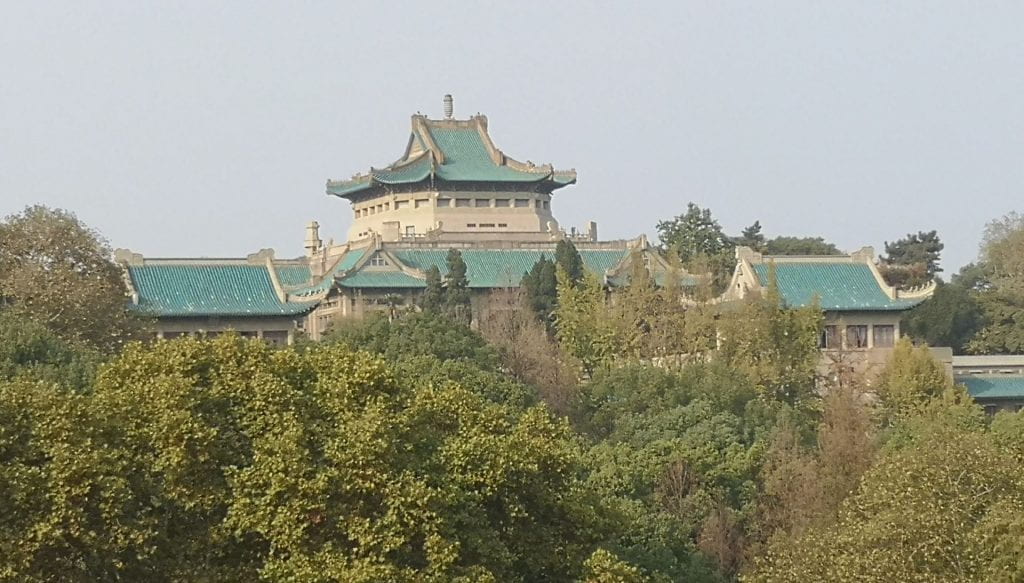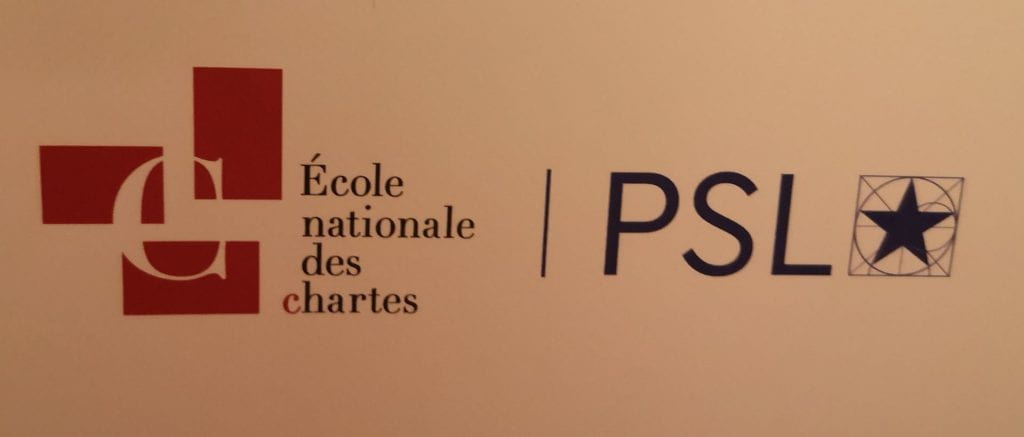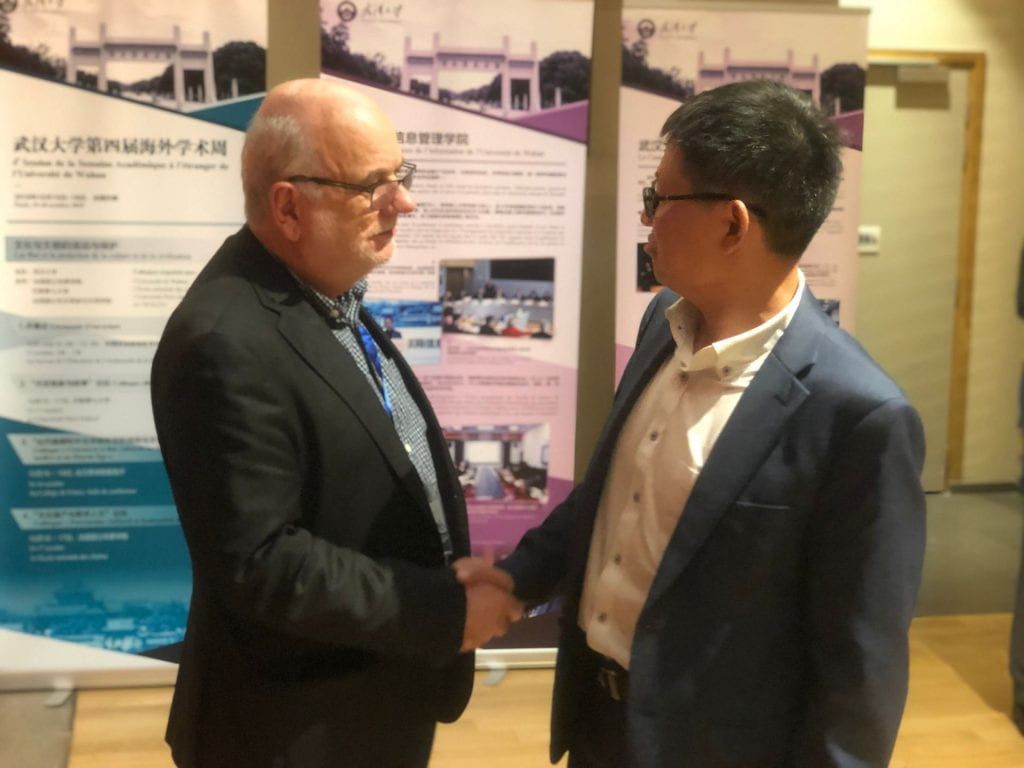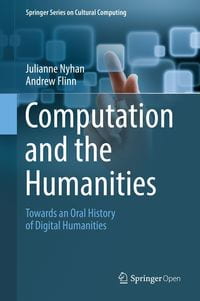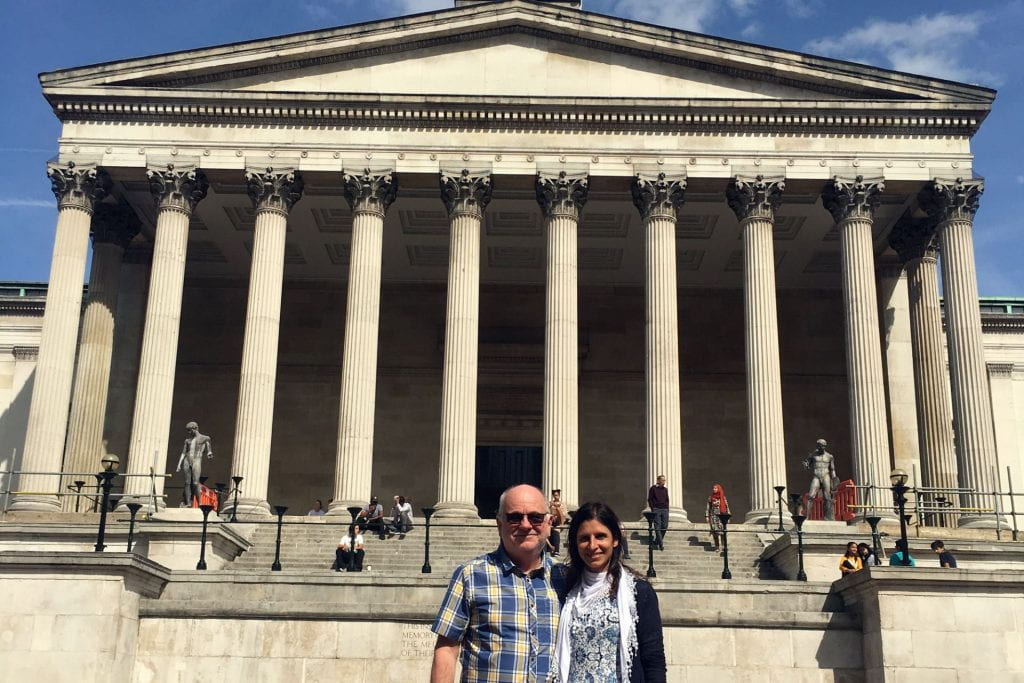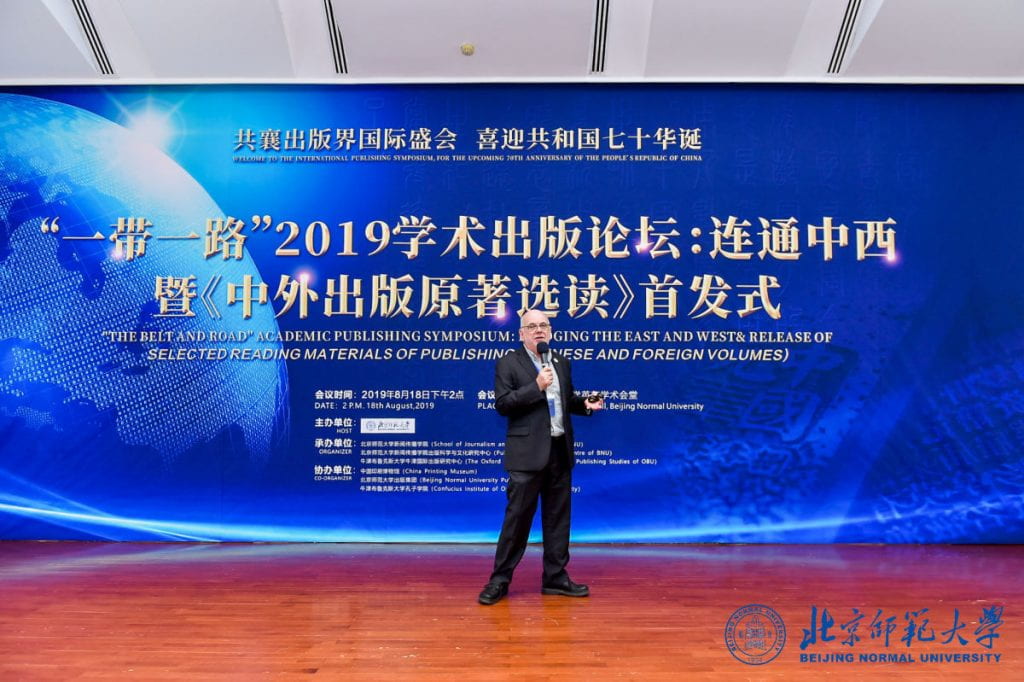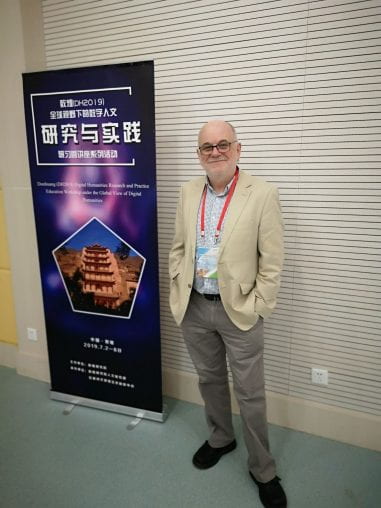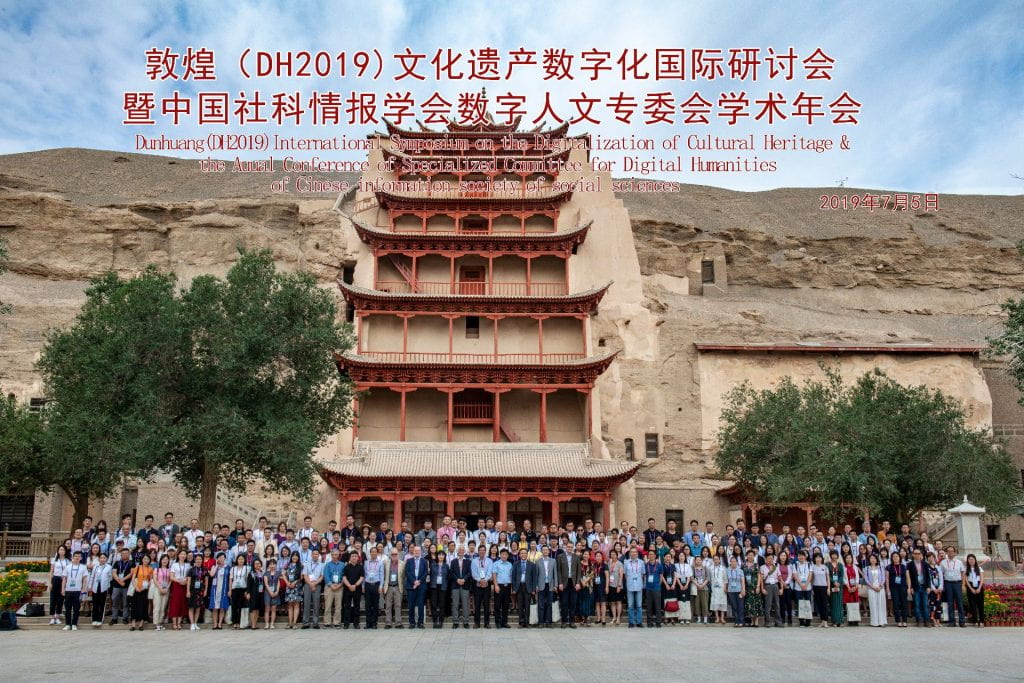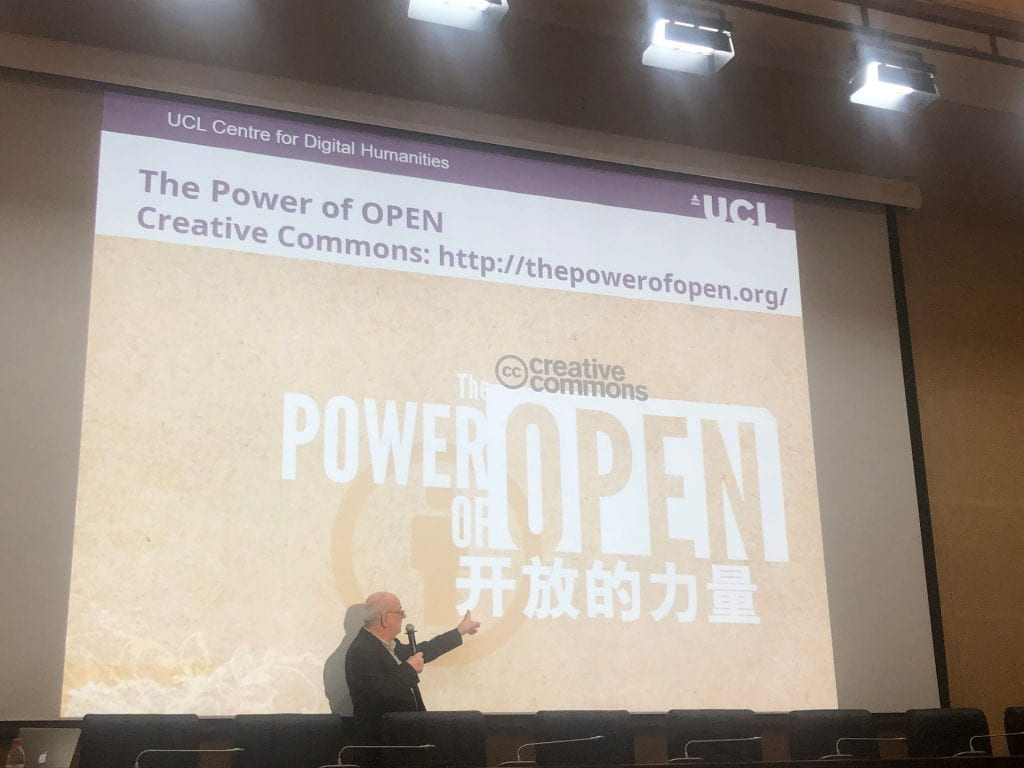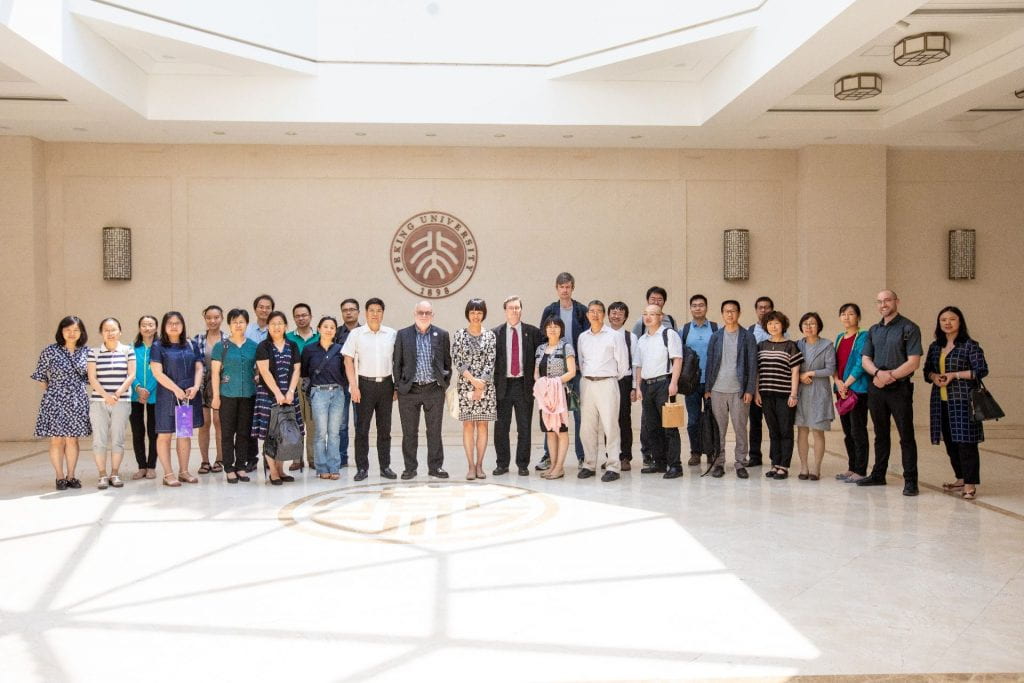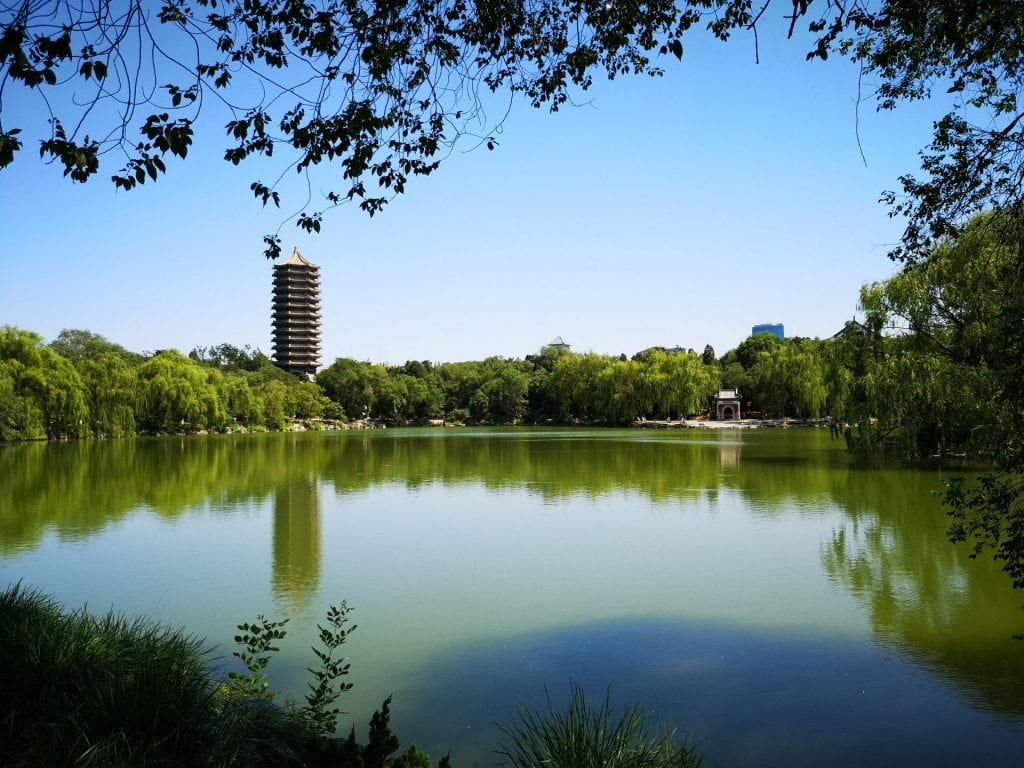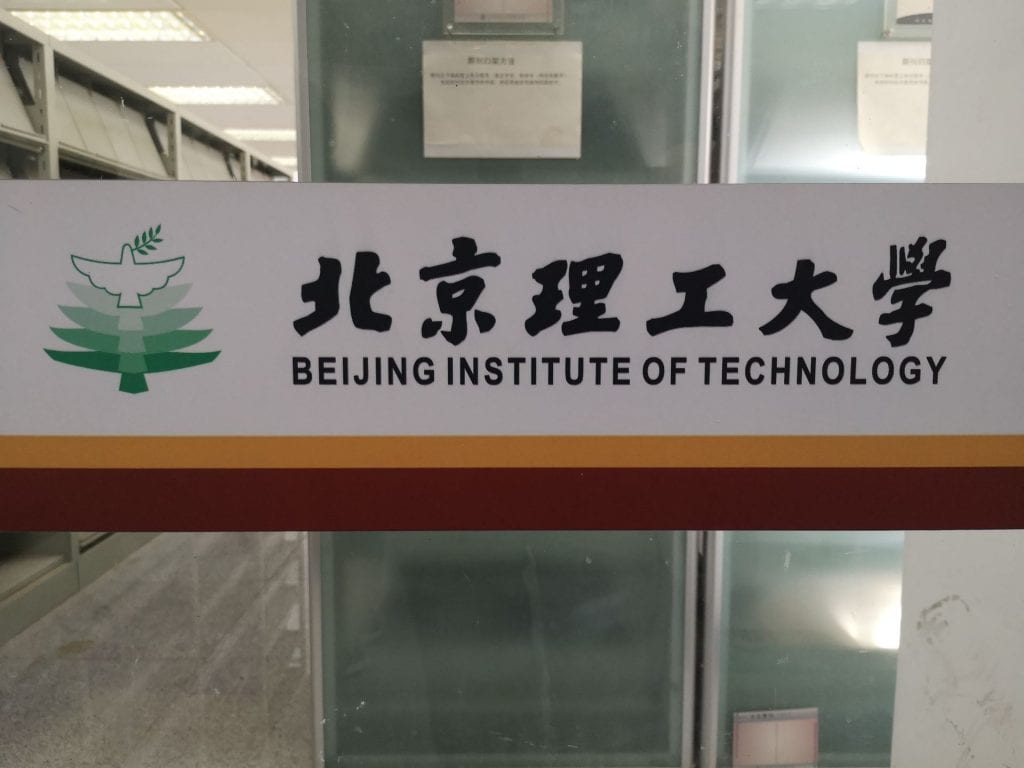Digital Publishing Conference at Wuhan
By Simon Mahony, on 24 November 2019
In November, I was back at the University of Wuhan as an invited guest speaker for the 6th International Conference on Publishing Industry and Publishing Education in the Digital Age (spot me in the group photo). I was presenting in the strand for Open Access Publishing which gave me the opportunity to speak to Open Publishing and the Open Science Agenda, showcasing the EU Digital Agenda, UCL Press and particularly the new UCL Megajournal. ORCID is an important part of the latter initiative to allow disambiguation and ensure correct attribution; this is starting to see some uptake in China although still limited. One of the other presenters particularly focused on the specific need for ORCID to identify individual Chinese scholars who may share very similar, if not identical names.
The School of Information Management at Wuhan is the top-ranking iSchool in China and, just as our iSchool – the Department of Information Studies, it is celebrating its centenary in 2020.
The University of Wuhan is generally acknowledged as being the most beautiful campus in China. It is a tourist attraction in the Summer with its extensive displays of blossoms. Autumn is another good time to visit with the changing colours of the leaves on the trees. The campus is on a sprawling hill, full of a wide variety of trees (each part of the campus is named after the trees there) and with a castle (now library and accommodation) at the very top.
New open access publication
By Julianne Nyhan, on 22 November 2019
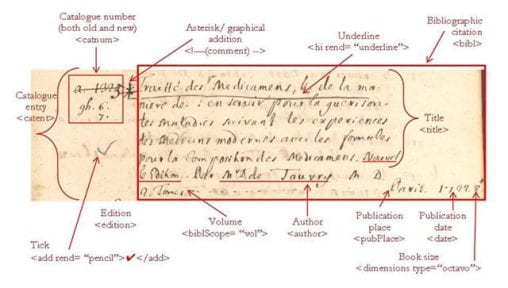
MS 3972C vol. VI, f.7. British Library (Public domain in most countries except the UK). An annotated extract from Sloane’s catalogue of printed material showing composite parts of individual catalogue entries. For readability we have dropped the enlightenment architectures namespace prefix.
Julianne Nyhan, UCLDH Deputy-Director, and colleagues in the Leverhulme-funded ‘Enlightenment Architectures: Sir Hans Sloane’s catalogues of his collections’ (2016–19), recently published a substantial open access article in the Open Library of Humanities.
This article presents a significant aspect of the work of the ‘Enlightenment Architectures’ project, a collaboration between the British Museum and University College London including contributions from the British Library and the Natural History Museum. The project investigates Sir Hans Sloane’s (1660-1753) original handwritten catalogues of his collections in order to understand their highly complex information architecture and intellectual legacies. To do so, the project has employed computational analysis to examine how Sloane’s catalogues are composed and the way their structure and content relate to the world from which his collections were assembled – the first substantial example of such an approach.
Digital Humanities in the Memory Institution addresses some of the challenges of seeking to integrate the methods of digital humanities with those of cataloguing, inventory, curatorial and historical studies, especially in the context of early modern documentary sources. Focusing on two case studies which exemplify the complexities of encoding Hans Sloane’s catalogues in accordance with the Text Encoding Initiative (TEI), the article sheds light on both the technical and epistemological challenges of encoding early modern catalogues, while emphasising the new questions and perspectives that arise from such complications. Most strikingly, the article draws attention to the parallels between early modern and current classification systems, and the on-going dilemma of how best to use language to describe objects.
Digital Humanities in the Memory Institution has resonance for the institutions, individuals and communities alike who research, curate, archive and simply even browse digital heritage collections.
See: Digital Humanities in the Memory Institution: The Challenges of Encoding Sir Hans Sloane’s Early Modern Catalogues of His Collections. Ortolja-Baird, A., Pickering, V., Nyhan, J., Sloan, K. and Fleming, M., Open Library of Humanities, 5(1), 2019, p. 44. DOI: http://doi.org/10.16995/olh.409
Sino-French Forum, Cultural Heritage and Digital Humanities
By Simon Mahony, on 17 November 2019
Just for a change, in October I was invited to speak at an event in Paris. This was organised by the University of Wuhan (as part of their International Sino-French Week) and I’École Nationale des Chartes and hosted at I’Université Paris Diderot: 4e Session de la Semaine Académique à l’étranger de l’Université de Wuhan .
There were several events on different days and in different locations. Ours was ‘Cultural Heritage and Digital Humanities: A comparative approach through research projects’. This was a truly international event with speakers there from Wuhan University, I’École Nationale des Chartes, other Chinese and Paris institutions, the British Library and UCL. The theme allowed me to showcase some of the high-profile and innovative cultural heritage imaging conducted by UCLDH both in our digitisation suite and beyond: ‘Non-invasive and Non-destructive Computational Imaging of Cultural Heritage’.
The session was spread over two days, featuring imaging applied to bamboo slips, Dunhuang Mural Images, Watermarks in Medieval and Modern Western paper, digital recordkeeping, astronomic documents and much more. It was particularly pleasing to see the work of some of the French PhD students showcased; mapping, geolocation, cinema and historic Paris featured highly.
Computation and the Humanities download highs
By Julianne Nyhan, on 8 November 2019
UCLDH Deputy Director Julianne Nyhan and Andrew Flinn’s open access book Computation and the Humanities: towards an oral history of Digital Humanities has been achieving high download rates.
As of November 2019, Computation and the Humanities has been downloaded some 116,205 times and counting! According to the most up-to-date information from the book’s publisher, Springer, the book was in the top 25% most downloaded of their texts of 2018. Also, its download rates were almost triple the discipline download average rates for 2018. It looks like the book is becoming a vital reference for scholars of cultural and computing history, digital humanities and cultural heritage alike. It also features in a number of university syllabi (Open Syllabus).
Computation and the Humanities: Towards an Oral History of Digital Humanities presents the first rigorous oral history account of the history and development of digital humanities. No longer a fledgling discipline, recently a marked interest in the historiography of digital humanities can be noticed. More nuanced understandings of the history of its intellectual agenda, influences, the development of its methods over the past 70 years and its place within the humanities more generally, are starting to emerge. Nyhan and Flinn’s book is an important contribution to this scholarship.
Computation and the Humanities features a series of fourteen oral history interviews that Nyhan conducted with sixteen well- and also lesser-know pioneers of the Digital Humanities. Those interviewed include Susan Hockey, John Burrows and Michael Sperberg-McQueen, whose memories are “essential to charting the often disputed and disputatious histories of the establishment of new disciplines” (Computation and the Humanities, 22). In the oral history interviews included in this book, and the four more analytical chapters that are also included in it, Nyhan and Flinn insightfully unpick the complex foundations, motivations and intellectual roots of Digital Humanities.
This book is open access under a CC BY-NC 2.5 license. Please grab yourself a copy of it if you have not done so already!
Do also note that the interviews included in Computation and the Humanities can be read alongside a further selection of open access oral history interviews that were published in Digital Humanities Quarterly in 2012
Alumna Visiting UCLDH Under Erasmus+
By Simon Mahony, on 21 September 2019
It was my great pleasure to welcome Vera Motyckova, a student from my very first class here (2010), back to UCL under the Erasmus+ scheme. We had extensive discussions about Digital Humanities teaching and research as well as course administration and other academic activities within the area of Digital Humanities. Working on H2020 herself, she was very interested to meet with DH colleagues also working on H2020. Vera was also keen to see the changes since she was here last and we visited our Digitisation Suite, the new Student Centre and other rebuilt parts of the College. It was also a good opportunity for Vera to resurrect her UCL email account and search out assignments and feedback.
It was great to be back at UCL DIS almost a decade later after I graduated and got my MA in Electronic Communication and Publishing in 2010. After leaving UCL I went to work for the BBC to commission online educational content. I returned back to the Czech Republic in 2016 and have now had the opportunity to visit UCL from the Department of Information Technologies at the Czech University of Life Sciences Prague (CULS) through the Erasmus+ Staff Mobility programme. The visit was very useful and productive, we shared best practice and explored opportunities for further collaboration, and I am very much looking forward to this cooperation. I would like to thank Simon for organising an excellent programme for me at UCL and for all his help during my stay.
Vera Motyckova
Book publishing and the Beijing Book Fair
By Simon Mahony, on 11 September 2019
Another trip to Beijing and another experience. This time the invitation was from Beijing Normal University (BNU) to be guest speak at their international academic symposium: “The Belt and Road” Academic Publishing symposium: Bridging East and West. This was organised jointly by the School of Journalism and Communication of BNU and the Oxford International Centre for Publishing at Oxford Brooks University.
One thing that I found particularly interesting was from the Chinese scholars and their emphasis on the importance of the study of Chinese ‘classics’ and particularly of old rare manuscripts (a view that I share when it comes to our own culture). This was in the context of the origins of the print industry with firstly the invention of Publishing Material ‘paper’ followed by Publishing Technology ‘printing’ and, of course, its export to the rest of the world pushing forward the ‘world civilisation’ through what they termed as the ‘Chinese Book Road’ as part of the wider ‘Belt and Road’ strategy.
There were other talks about the state and future of international cooperation in academic publishing. The symposium acknowledged the language barrier in academic publishing and the symposium was also the launch event of two edited volumes of academic publishing articles translated from English to Chinese – they sit in my office alongside many other publications that I, for want of language skills, am not able to read.
My talk featured UCL Press and the Open Agenda covering, albeit briefly, Access, Publishing, Education and Data.
As always, I was very well looked after by my hosts with an extremely able student on the Master’s Publishing programme at BNU, making sure that I did not get lost. I was unfortunately not able to stay to attend the Beijing Book Fair which followed due to work commitments, but I did manage to round off the trip with a visit to the really excellent and highly recommended, China Printing Museum.
Facilitating digital art for UCL Raw Materials: Plastics, using 3D modelling and photogrammetry
By Lucy Stagg, on 9 September 2019
UCLDH Deputy Director, Prof Tim Weyrich, has been providing technological support to facilitate an artist residency programme, part of the UCL Raw Materials: Plastics Knowledge Exchange project led by PI Katherine Curran, funded through UCL Innovation & Enterprise. The project is a collaboration with Bow Arts Trust in east London, the Institute of Making, the Slade School of Fine Art and the UCL Department of Art History.
The artist in residence, Frances Scott, uses digital and analogue film processes to create her artworks. This summer, her work has been part of an exhibition at Bow Arts and an extensive programme of community projects in East London around Raw Materials: Plastics.
Furthermore, Frances’ film PHX [X is for Xylonite] has been selected to be screened at the 57th New York Film Festival on 6th October 2019.
Frances Scott explores the history and usage of plastic in this imaginative essay film. Using three-dimensional animations, distorted vocal recordings, and the words of Roland Barthes, she connects the founding of the first plastics factory in 1866 and the development of cellulose nitrate, a key element in the creation of film stock.
The film includes animated 3D models of objects from UCL Institute for Sustainable Heritage’s Historic Plastic Reference Collection, made using photogrammetry and laser scanning techniques, and hand-processed 16mm film footage of data collected from ISH laboratory equipment.
DH2019 China style
By Simon Mahony, on 24 July 2019
The annual international ADHO Digital Humanities conference 2019 was held in Utrecht, the Netherlands. The week before that I had the very great pleasure to be an invited guest at the 2019 International Symposium on Digital Humanities and Cultural Heritage (DH2019) at Dunhuang, China. This was held at the Dunhuang Mogao Caves, a UNESCO World Cultural Heritage site and home of the Dunhuang Research Institute.
With no direct flights to Dunhuang, I took the opportunity to stop over at Shanghai on the way there and the way back. I would not pass up the opportunity to visit the Shanghai Library and other friends there.
One of these was from the contacts made at a trip to Nanjing earlier this year. When there, I met researchers from the DH group at the Shanghai University and was invited to give a talk there next time I visited Shanghai. This is a good example of how networking supported by UCL Global Engagement creates new partnerships and opens up possibilities for cooperation and collaboration; relationships that can be fostered and built upon.
I was very pleased to be given a guided tour of the campus and their new library building, which reminded me a little of moves here UCL where there is much emphasis on creating space for the students.
Once at Dunhuang, but before the conference itself, I participated in a two-day workshop on various aspects of Digital Humanities teaching, learning and research.
Interestingly, their concept of a ‘workshop’ was considerably different to ours (good job that I checked first) as there was no expectation that I should set tasks for the participants but rather just to give an extended talk followed by Q&A and discussion. My slides have translations, with thanks to Yaming (Cindy) Fu and also to UCL Global Engagement for supporting this.
The main event followed after we were given a VIP tour of the caves; the Mogao Caves (says UNESCO) have the largest and riches collection of Buddhist art in the world. Photography is not permitted inside the caves but for really amazing images see the Digital Dunhuang website.
This was an international event with several speakers from the USA; one from UNESCO another from the British Library, as well as myself, to make up the non-Chinese speakers. It brought many Chinese Digital Humanities researchers and practitioners together at the same event; indeed, almost all the groups that I have been networking with as well as many ones that were new to me. This was a great pleasure for me as I usually have to travel extensively to see so many Chinese friends.
There is a full write up and description from one of the international organisers and Centre for Digital Humanities at the University of Wuhan.
While we were there heavy rain in the mountains triggered floods in the river Daquan which washed out the bridge in the only road to and from the cave complex. Rather than causing us alarm, and despite the apologies of our host, we were treated to an exhilarating 4×4 ride over the mountain and across the desert to the city of Dunhuang and safety. A memorable trip indeed.
Returning to Shanghai gave the opportunity to consolidate a new connection made at the conference with the Director and researchers at the Shanghai Museum – one of my favourite museums (it only holds and displays artifacts from China) that I have visited many times but this time accessing via the guest entrance and avoiding the long queues.
As well as making new connections that I shall revisit at future occasions, catching up with former students and Shanghai friends, this truly was a memorable and unforgettable experience – the trip of a lifetime. If you ever get the opportunity to go, make sure you do! Mentioning UCL and UCLDH may get you the VIP treatment.
International Archives Week in Beijing
By Simon Mahony, on 24 July 2019
A planned June networking visit to Beijing, supported by the UCL Global Engagement fund, coincided with International Archives Week 2019. I was the guest of the Beijing Municipal Archives at the opening ceremony of their impressive new building and also invited to give a keynote address, the first in their new Beijing Archives Hall, on the first day of their celebrations. If you visit, it has a roof garden.
My introduction to the Beijing Archives was through my contacts at Renmin University (RUC) where I was scheduled to visit and give a talk to students and staff.
The School of Information Resource Management at RUC look after visitors very well and take care of all the arrangements. My original connection was because they are a member of the iSchools Organisation as is my home department at UCL, the Department of Information Studies.
Students from that School were volunteers at the Archives event and supporting an exhibition on Intangible Cultural Heritage.
Peking University (PKU), UCL’s strategic partner, hold an annual Digital Humanities Forum. This year, due to budgetary constraints, it had to be scaled down to the Peking University Digital Humanities Mini Forum but was still an impressive event with international as well as local speakers.
A visit to PKU always means catching up with friends there and relationships that have been built up through networking enabled by the UCL Global Engagement fund; this type of funding is so important for developing these networks and particularly in our area as Digital Humanities is such a dynamic and fast growing field in China. As well as people, it is also the places that are important. I’m a native Londoner, this is my tenth year at UCL, and I have great affection for the Gower Street campus, but we have nothing to compare with the lake and pagoda at PKU, which is a tourist attraction in its own right.
One of the great advantages of these networking trips is that it allows you to meet new people and make new connections. One of these at this trip was the Beijing Institute of Technology where I was introduced to their archives and collections – a connection that I hope I can build on.
I found their logo particularly interesting with its iconography clearly meaningful through both Eastern and Western eyes. This prompted an in depth discussion about semiotics, cultural similarities and differences with the Dean of their School.
As always, the visit was rounded off with dinner with former students (and one current one too).
Google image results and gender: fair play or own goal?
By Oliver W Duke-Williams, on 5 July 2019
 Close
Close




